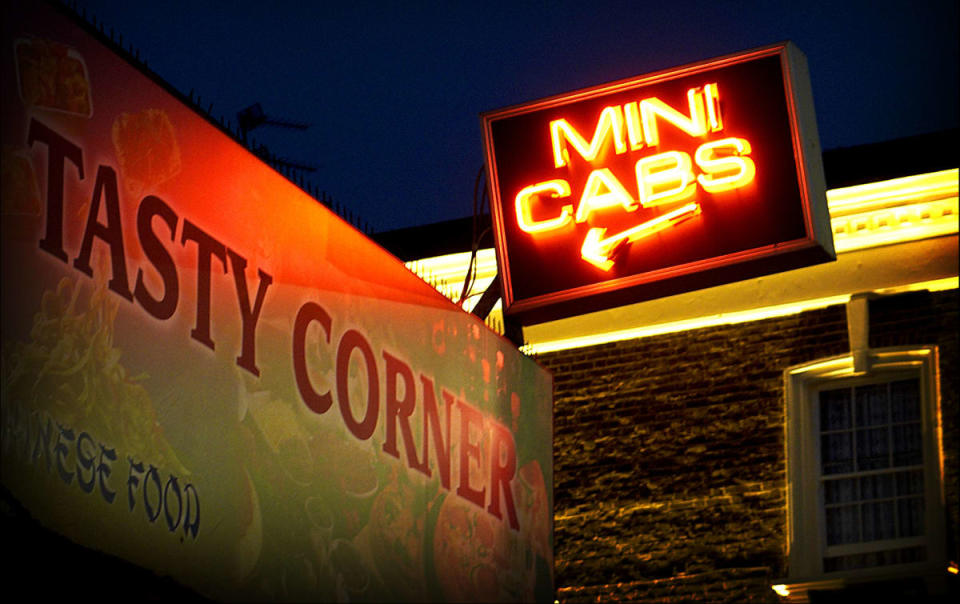UK watchdog singlehandedly dismantles TfL's Uber sanctions
Uber's found an important ally in the government's Competition and Markets Authority.

Uber's impact on the London taxi trade has been huge. The exponential growth of the ride-hailing service has caused anger and criticism among more traditional operators, particularly black cabbies, who argue lax regulations have allowed Uber to flourish unchecked. After a long-fought legal challenge, London's High Court recently ruled that the way Uber calculates fares is legal, and is not equivalent to taximeters reserved for black cabs exclusively. No sooner had that bullet been dodged than Transport for London (TfL) let another fly in the form of proposals to significantly overhaul private hire regulations, under the guise of improving passenger safety.
Many of the draft requirements would drastically change the way Uber operates, and the ride-hailing service has already laid out why it thinks the rules are backwards. Today, it's found an important ally in the government's Competition and Markets Authority (CMA), which has engaged in the ongoing consultation process by commenting on TfL's proposals. And the CMA's point-of-view is pretty clear cut: The regulations would be bad for consumers and bad for business.
Wait times and pre-booking requirements
Take the idea of a mandatory five-minute wait period before picking up passengers, for example. TfL sees this as a way to ensure consumers have ample time to figure out what car/driver they should be looking out for so they don't jump into some opportunist's cab. In the CMA's opinion, this would only serve to make app-based booking less convenient, particularly when you can often hail an Uber in central London in well under five minutes. Not to mention this proposal would also have you hanging around outside a minicab office while the wait period expires when you might be able to jump into a car straight away. Noting that France briefly employed a similar rule against the advice of its competition authority, the CMA says there's no evidence a five-minute wait would be of great benefit to passengers. If anything, it's just benefitting black cabbies by "artificially hampering the level of service" private hire companies can offer.

Other proposals Uber claims will slow down the fluid system for drivers and users include the requirement of a destination and agreed fare before the start of a journey. This is something you can do in the Uber app already, of course, but making it a necessity would add one more step to the process of hailing a ride. TfL hopes it'll make fares more transparent and reduce overcharging, while the CMA states there's nothing to suggest that's a rampant problem. Furthermore, the authority says precise fares would "prohibit innovative pricing models that could be more efficient" -- removing another parameter of competition -- and that average/estimated costs could lead to higher prices overall.
Then there's the rule that would force private hire operators to offer bookings up to seven days in advance. Uber doesn't want schedules that have drivers cruising to pre-booked jobs with empty seats, and waiting around for a booking that might not show up. TfL, however, suggests it's reasonable to expect such a facility and that it's important pre-bookings are available to those that rely on them, particularly disabled passengers. While Uber is trying to improve its service for these users, the CMA believes a forced pre-booking facility is entirely unnecessary. Where customers find pre-booking useful, there are plenty of operators that offer just that. And since private hire vehicles (not black cabs) would be impacted exclusively, the rule would push companies that can't or won't provide a booking facility out of the market. This would lead to reduced competition without really improving services for anyone.
Advertising availability and ride-sharing

Another of TfL's proposals would stop private hire operators from promoting vehicle availability. The idea is it'll curb touting and other illegal activity (among minicabs, at least), but for the Uber app, it would mean no map showing vacant cars in your area. The CMA bluntly states that "TfL does not provide any evidence that the proposal meets any genuine public interest," and that the rule would only harm customers who value the facility, reducing the quality of service as a result.
TfL wants to put "very clear controls in place [on ride-sharing services] to protect the safety of passengers and drivers," which the CMA recognises as important. Uber's bringing its UberPool ride-sharing option to London in a just few days despite impending regulatory changes, and the CMA is urging TfL not to ignore the potential benefits to customers. The authority doesn't think reams of red tape should hinder new business models, noting that "licencing authorities elsewhere in the world have found regulatory approaches which achieve their aims without eliminating ride-sharing."
"London will surely struggle to be a leader in tech innovation or a destination for the best startup talent if regulators are calling the shots on which ideas sees the light of day."
Further to this, TfL wants the power to approve new operating models before they go into action. In response to this proposal, Uber argues "London will surely struggle to be a leader in tech innovation or a destination for the best startup talent if regulators are calling the shots on which ideas sees the light of day." The CMA largely agrees, saying it'll adversely affect competition by disincentivising innovation. Essentially: Why go to the trouble of cooking up new services when TfL can simply reject them? In the CMA's view, TfL has failed to explain why new business models may be less compliant with existing legislation that protects passenger safety, and how "this 'precautionary principle' approach is a proportionate form of mitigation."
Geography tests and landline contact numbers
The CMA also isn't convinced that a geographical skills test, such as the Knowledge-like exam London Mayor Boris Johnson floated the idea of earlier this year, is really necessary. Simply because, well, satellite navigation exists. While the CMA doesn't deny a familiarity with London geography is a helpful fallback, it doesn't ensure drivers are any better at avoiding traffic jams than sat-navs that can plan alternative routes. It's another hoop private hire drivers will have to jump through, and passengers are unlikely to benefit. "To the extent that different consumers value differing levels of navigational skill, we would expect the market to provide a range of alternatives."
A couple of TfL's proposals don't jeapordise Uber's operations as much as others, but the CMA still doesn't agree, for instance, that drivers should be forced to work for only one operator, and that private hire providers must have a fixed landline contact number. TfL wants to stop drivers working excessive hours by restricting how many companies they can work for, basically so a minicab driver doesn't start picking up Uber fares after a full shift doing airport runs. The CMA says this in no way prevents drivers working excessive hours for just one provider, and the proposal could lead to serious competition issues. If drivers aren't allowed to go where their services are most needed at any given time, they'll ally themselves with the provider that has the most customers, which could lead to a few or even one dominant player.

By requiring all private hire operators have fixed landline telephone, TfL wants to make sure passengers always have an immediate point of contact. The CMA points out there are plenty of taxi services with landline contact numbers, and that's great for passengers who value that. However, it doesn't work for every business model (Uber's, for example) and smaller companies might not be able to afford the costs associated with staffing a landline number. The CMA believes it's simply unnecessary as a rule, also commenting that if TfL does feel an immediate contact number is crucial, there's no legitimate case for why it has to be a fixed landline.
As you've probably gathered by now, the CMA's main concern is that some of the proposals "would impose regulation that excessively and unnecessarily weakens competition" to the detriment of consumers. The new rules would affect different business models to varying degrees -- Uber would be the most heavily impacted, of course -- and the CMA argues that further separating private hire and black cab regulations "distorts the playing field between them." While TfL would never say as much, it's very hard not to see its proposals as an attempt to alleviate some of the pressure on it from the black cab trade. And what you could conclude the CMA has done today is call out TfL on the rules that show clear competitive favouritism towards London's beleaguered Hackney carriage drivers.

